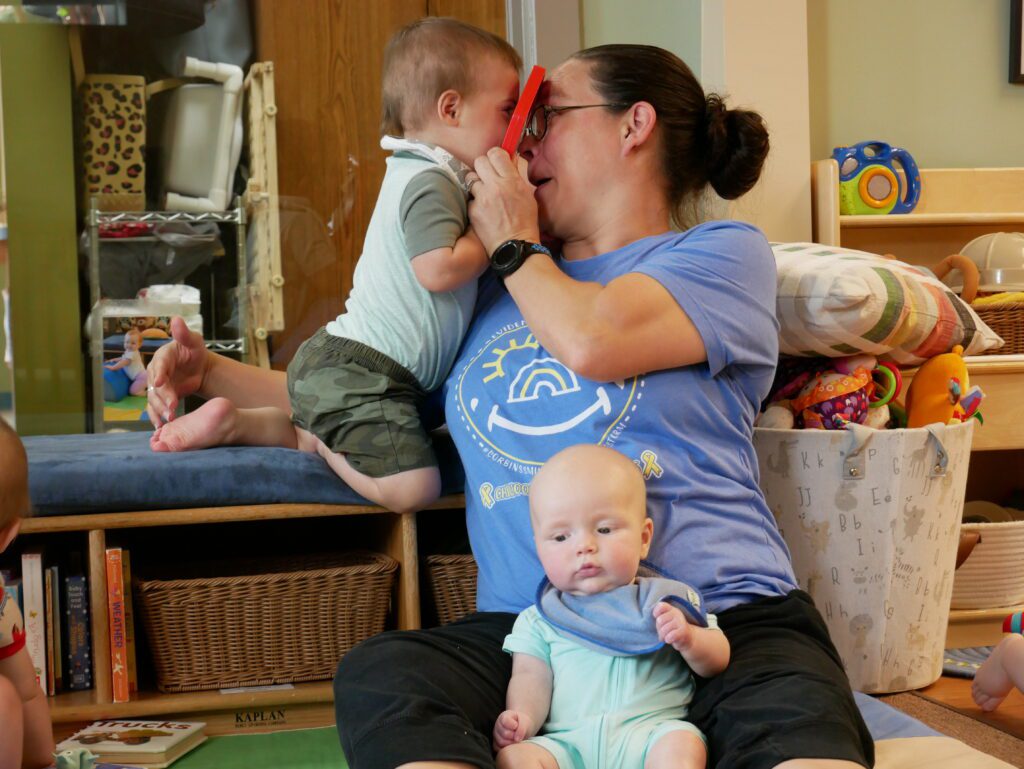'Making a way to solve' big problems
Early Bird readers, hello again. Newcomers, welcome! If you were forwarded this email, you can sign up here to receive it every two weeks, and join our conversation on issues facing North Carolina’s young children and those who support them. If you’re already a subscriber, please help us reach more people by sharing this with your friends and co-workers interested in early childhood education.


EdNC took a couple weeks to rest in late June and early July. But this week, the early childhood team is back in full force.
I kicked off my summer statewide tour, “School’s not out,” to visit with child care providers, teachers, and cross-sector leaders keeping communities going in every season and pushing for progress in early care and education. I started in the beautiful mountains of western North Carolina, in Wilkes and Ashe counties.


In Wilkes, a task force with philanthropic funding just released a study that explores the need for child care in the county. That need is dire and, with federal relief funds ending this year, many providers told me they’re concerned about longstanding issues getting worse (staffing, quality, affordability, and access). Go here to read my piece on the work coming from that task force and, of course, for voices from those doing the work day in and day out.
In Ashe, there was a similar spirit of collaboration and hope. The heads of the school district, the Partnership of Ashe, and the Ashe Chamber of Commerce sat down with me to lay out their vision for change.


Their dream is to open the Ashe County REALM Center, which stands for relationships, engagement, art, literacy, and math. It would serve children birth-to-five in an existing district pre-K site, expanding access for children to excellent early learning opportunities, and for parents and caregivers to work. It would give opportunities for pre-service teachers to gain hands-on experience through partnerships with Appalachian State University and Wilkes Community College.
And this model could work in rural communities across the state, they said. They’re seeking $5.5 million from the legislature this session, and looking for local funding supports in the meantime. Local ownership is important, Kitty Honeycutt, president of the chamber, told me.
“We own that this is a problem for the community, and we also own the responsibility of making a way to solve it,” Honeycutt said.
I’ll have a story soon diving into Ashe County: its unique programs and ideas, its commitment to early childhood apprenticeships, and its innovative model for the future.
A special shout-out to Michelle Shepherd, the new executive director of the Wilkes Community Partnership for Children, who showed me the best foot-long hot dog I’ve ever eaten and drove me to a jam-packed day full of conversations and classroom visits.


And another special thank you to Marilyn Agnew, early childhood and education consultant at Partnership of Ashe, for coordinating program visits, driving me around, and inadvertently making a baby cry with Peek-A-Boo.


I’m headed to Alexander County next week, then working my way east little by little. Any recommendations on people to meet, places to stay or eat, or questions to ask along the way are more than welcome!
Thank you for all you do for children, our state, and our future. And thanks for welcoming me into your classrooms and homes.
Early Bird reads: What we’re writing
In Wilkes County, child care is ‘a community problem.’ Leaders are working on community solutions
As state budget negotiations continue in Raleigh, Wilkes County leaders are getting to work. The Wilkes Child Care Task Force, assembled about a year ago, held an event earlier this month to announce the release of a child care study, raise awareness about the problem posed for families and businesses, and discuss what can be done to help.
“When we had our very first focus group, there was a gentleman that stood up and said, ‘I don’t have children in child care. Why does this matter to me?’ And that was the voice of the community,” said Michelle Shepherd, executive director of the Wilkes Community Partnership for Children. “And now, look, a year later, this is a community problem — because of businesses, and bringing in industry, and the aging out of our current residents while we’re going to have an increase of children — it’s a community problem.”
Community college funds are needed to help students with child care costs, local administrators say
The state’s Senate budget proposal would increase funding for grants that help community college students afford child care: $1.2 million in additional recurring funds in each of the next two years.
EdNC spoke with administrators who manage the grant funds from Carteret Community College, Fayetteville Technical Community College, Durham Technical Community College, and Sandhills Community College.
They said the program still barely scratches the surface when it comes to the child care needs of their students and communities. It needs more funding and wider eligibility, and communities need more child care investment to address systemic supply issues.



